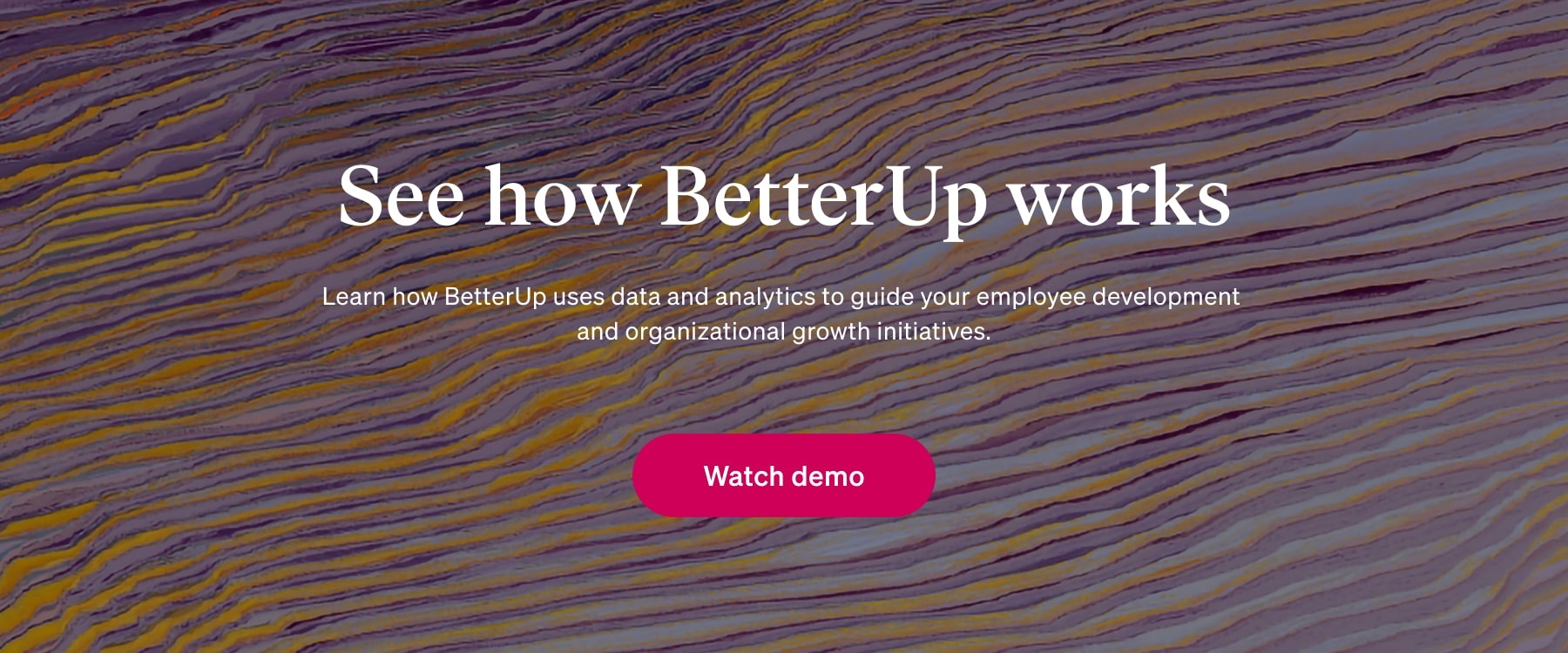-
For Business
For Business
Products
LeadBuild leaders that accelerate team performance and engagement.
Care™Drive productivity through sustained well-being and mental health for all employees with BetterUp Care™.
Solutions
Sales PerformanceTransform your business, starting with your sales leaders.
Diversity & InclusionFoster a culture of inclusion and belonging.
Customers
Case StudiesSee how innovative companies use BetterUp to build a thriving workforce.
- For Individuals
-
Resources
Resources
LibraryBest practices, research, and tools to fuel individual and business growth.
EventsView on-demand BetterUp events and learn about upcoming live discussions.
BlogThe latest insights and ideas for building a high-performing workplace.
ResearchInnovative research featured in peer-reviewed journals, press, and more.
- About

We’ve all been there.
You’ve really got to talk to your supervisor about scheduling yet another meeting after hours.
You know your colleague should probably redo that project, but maybe it’s fine?
Meetings with your clients have gotten dicey, but you can’t seem to address the root cause.
That recurring newsletter you’ve been asked to do? No one reads it. But how do you refuse?
Sure, you should address the uncomfortable, prickly situations that arise at work, but we get it — confrontation can be unsettling. At best, it’s a little sweat-inducing. At worst, destabilizing.
But what if that temporary discomfort yielded long-term benefits?
Resolving issues in the workplace isn’t just a nice-to-have recommendation from human resources. It’s a prime opportunity to grow.
Go on, rip off the band-aid
We dread getting into difficult situations at work, but most instances of conflict have surprising benefits. Our data show that dealing with difficulty in the workplace actually influences growth.
Researchers at BetterUp used a Natural Language Processing (NLP) model to detect key work and life events mentioned in assessments from tens of thousands of members and coaches. Members were split into two groups (one having had difficult conversations, and the other having had none) and researchers compared the growth of the two groups across multiple outcomes of the whole person model.
What we found surprised us.

Having difficult conversations and situations is linked to greater growth in two areas:
Members who have had difficult conversations and situations experience 41% greater growth in strategic planning skills than members who have not. This could mean that encountering difficulties and having difficult conversations helps employees to gain experience and become better at anticipating roadblocks. That also means that employees might do better at boosting their ability to plan for the future, a trait also called prospection.
Similarly, members who have had difficult conversations and situations experience 49% greater growth in growth mindset than members who have not. Put simply, help from coaches makes encountering challenges a catalyst for fueling resiliency and an attitude perfect for bouncing back from challenges.
Not all conflict is the same, but the benefits are worth it
Before anyone goes and rushes headlong into a spat with their supervisor, know that there is a specific type of conflict that proves beneficial: productive conflict. Unlike destructive communication that can inhibit trust and respect among colleagues, productive conflict is an important part of healthy communication. When done right, team members may disagree but everyone’s ideas are heard and respected. Thus, productive conflict serves as an essential ingredient to both team and organizational growth in myriad ways:
It encourages healthy debate
Healthy discourse repels complacency amongst team members. This contributes to a sustainable company culture of open dialogue and discussion. Strong teams should be able to challenge each other’s thinking, debate, and come together to decide on the best plan of action.
It creates an environment of learning
In the face of misunderstanding, some employees might nod their heads and keep quiet. Fear might stand in the way of asking their manager questions or disputing a decision because they don’t want to cause contention. This prevents team members from learning from their managers and peers learning from each other. But companies that normalize productive conflict encourage an environment of shared learning.
It helps teams work toward their goals
Working through conflict helps teams learn how to embrace productive conflict, welcome different opinions, and thoughts, and resolve issues. In turn, this creates a more enriched (and inclusive!) work environment that allows teams to move forward by promoting cognitive flexibility and increasing productivity.
Essentially, having difficult conversations and navigating unpredictable situations in the workplace needn’t be feared; it’s an opportunity (especially when coupled with coaching) to grow as an individual, a member of a team, and a resilient contributor to an organization unafraid of challenges and change.
Erin Eatough, PhD
Sr. Insights Manager





